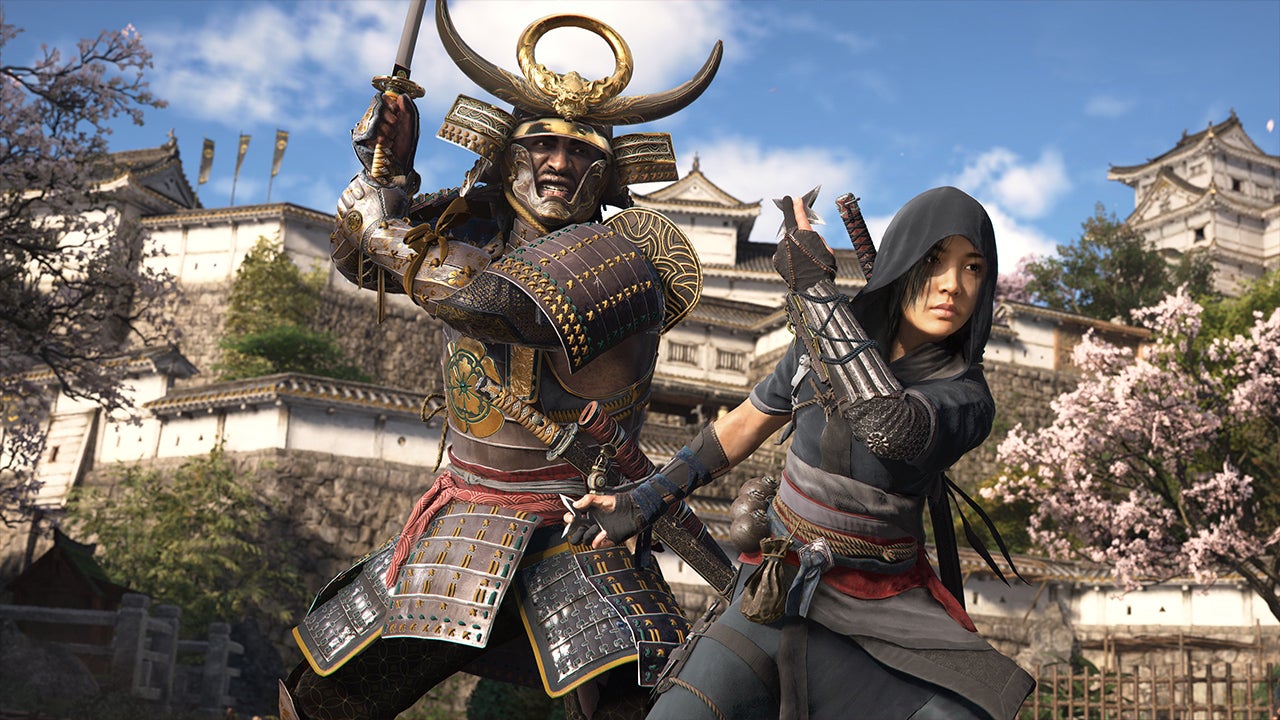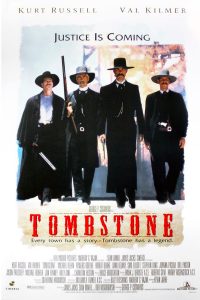
Assassin’s Creed Shadows looks poised to be a departure from the tone and tenor of its franchise, especially as of late. While last year’s Assassin’s Creed Mirage was always intended to be a throwback to earlier games in the series, that installment was also marketed as something of a side story—a smaller contained adventure versus the sprawling open world RPGs which compose Assassin’s Creed Odyssey and Valhalla. But Assassin’s Creed Shadows, the series’ long-requested foray into the history of feudal Japan? This title is being developed by the same team at Ubisoft Québec that gave us Odyssey. So players very well might have expected more of the same.
If so, the first trailer and press releases of Shadows appear to be a warning and a promise: the next AC game will be going its own way, right down to the fact that for the first time, one of the protagonists will be an actual historical figure, the legendary Black Samurai Yasuke.
And making Yasuke a playable character should clue you in instantly to the time period the game is set in—and why the story might seem vaguely familiar if you’re up-to-date on your prestige cable television.
Yasuke and Nobunaga
The presence of Yasuke as a protagonist in Assassin’s Creed Shadows allows gamers to date the beginning of the game to a highly specific moment in Japanese history: 1579 to 1582. At least those are the historical years we know that Yasuke, a Black man of African origin (and likely African himself), lived in Japan during the Azuchi-Momoyama period (more on that in the next section).
While Yasuke’s native home or even his real name remain lost to history, we know thanks to the historical records kept by both Portuguese priests and Japanese scribes that he arrived in Japan in 1579 as a servant to Alessandro Valignano, an Italian Jesuit missionary. Valignano spent two years in the country as part of his duties as “Visitor of Missions in the Indies,” which brought him into contact with a powerful Japanese feudal lord named Oda Nobunaga. This powerful lord, or daimyo, was fascinated by the idea of a man with dark skin, and insisted on meeting Valignano’s attendant. Upon realizing this man’s skin was indeed “dark like a bull” (as his own servants recorded), Nobunaga demanded to make the man his own attendant. He named him Yasuke.
Yasuke became a personal favorite of Nobunaga, who is recorded to have “never tired” of their discussions, even as Yasuke was only beginning to learn Japanese. Nobunaga eventually made Yasuke a vassal and kosho (or bodyguard). Technically, the historical Yasuke never held the rank of samurai (although pop culture has immortalized him as such), but he did carry a sword in battle for his lord, including fighting ferociously in 1582 after Nobunaga was infamously assassinated by another traitorous vassal.
After this treachery, which is known to historians as the Honnō-ji Incident, little is known about Yasuke’s fate other than he survived the betrayal and was eventually treated by Jesuit priests for his injuries. There are legends though, including speculations that this artwork from 1605 of sumo wrestling includes a depiction of Yasuke.
A Setting Right Before the Time of Shogun
Yasuke might be a new character for Assassin’s Creed players, but if they have watched FX’s highly praised limited series Shōgun, it should seem vaguely familiar: Samurai with firearms; wooden European sailing vessels in the harbor; talks of the appeal and horror of unification. That is because the game almost certainly includes events from the year 1582, which means Assassin’s Creed Shadows takes place about 18 years (or eventually less) before the events of Shōgun.
Assassin’s Creed Shadows is again set during the Azuchi-Momoyama period, which in itself is recognized as the final 30(ish)-year phase of the larger historical Sengoku era. The Sengoku period (or “Sengoku Jidai,” which translates to “the Warring States period”) lasted for over 100 years between the 15th and 16th centuries in Japan, culminating with the rise of Tokugawa Ieyasu to the title of shōgun in 1603… which is the backdrop for the FX series Shōgun.
Set a few decades before that, Assassin’s Creed Shadows looks intent on exploring just how bad the Sengoku timeframe was with its endless intermittent descents into civil war, mass killings, and a general sense of lawlessness and chaos throughout the land. It was in fact a reaction to this chaos that Yasuke’s daimyo, Oda Nobunaga, earned the title of “Great Unifier.” The Azuchi–Momoyama era is marked as beginning when Nobunaga’s armies marched on Kyoto in 1568. It was the closest Japan had come to being a unified country in centuries up to that point and a peak of power for Nobunaga and his allies, including the man who would later be named Tokugawa Ieyasu, a young daimyo who made peace with Nobunaga’s clan.
While the Oda leader was assassinated in 1582, two of his retainers were also retroactively labeled his successors and Great Unifiers, especially Tokugawa, who is the historical figure Hiroyuki Sanada’s fictionalized Lord Yoshi Toranaga is based on in the FX TV series.
How the Setting Differs From Other Assassin’s Creed Games (and Ghosts of Tsushima)
It’s worth noting that due to this precise setting in the late 1500s, Assassin’s Creed Shadows will be the first AC game since 2015’s Assassin’s Creed Syndicate set anywhere near the modern period. In other words, it is set at a time after the events of the Third Crusade (the backdrop of the original Assassin’s Creed game), meaning the game can more freely make use of the lore around Assassins and Templars, as opposed to completely inventing the legend of “Hidden Ones” and “Order of Ancients,” as seen by the last three RPG AC games. More intriguingly to casual players, however, might be how this historical setting will differentiate Assassin’s Creed Shadows from the other recent—and highly-regarded—open-world adventure game set in feudal Japan, Ghost of Tsushima.
For starters we now know Assassin’s Creed Shadows will take place more than 300 years after the events of Ghost of Tsushima, which was a highly fictionalized telling of the First Mongol Invasion on the island of Tsushima in 1274. That game never left Tsushima and also took place before the proliferation of gunpowder or Japan’s introduction to the West. In other words, it was isolated to a small corner separate from the Island of Japan proper and anything resembling the modern world.
Assassin’s Creed Shadows is set on the mainland of Japan and will digitally recreate at least three historical provinces in that region. By being set on the cusp of the early modern period, the game is also said to allow players to interact with actual feudal Japanese cities and towns while Yasuke will reportedly be able to carry an arquebus (a long rifle).
So Assassin’s Creed Shadows’ setting at least promises the possibility of an AC experience that is unlike anything the franchise has done before (or at least in a very long time). We’ll know for sure when the game hits Xbox Series X/S, PlayStation 4, PC, Mac, and Amazon Luna on Nov. 15.
The post Assassin’s Creed Shadows’ Yasuke and Nobunaga Have an Interesting Connection to Shogun appeared first on Den of Geek.











